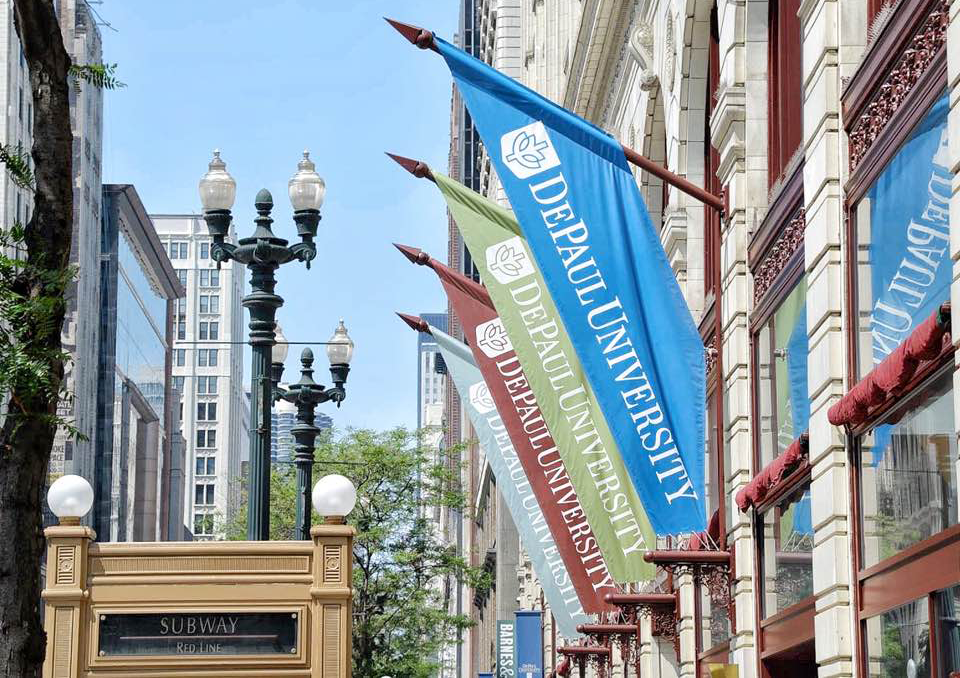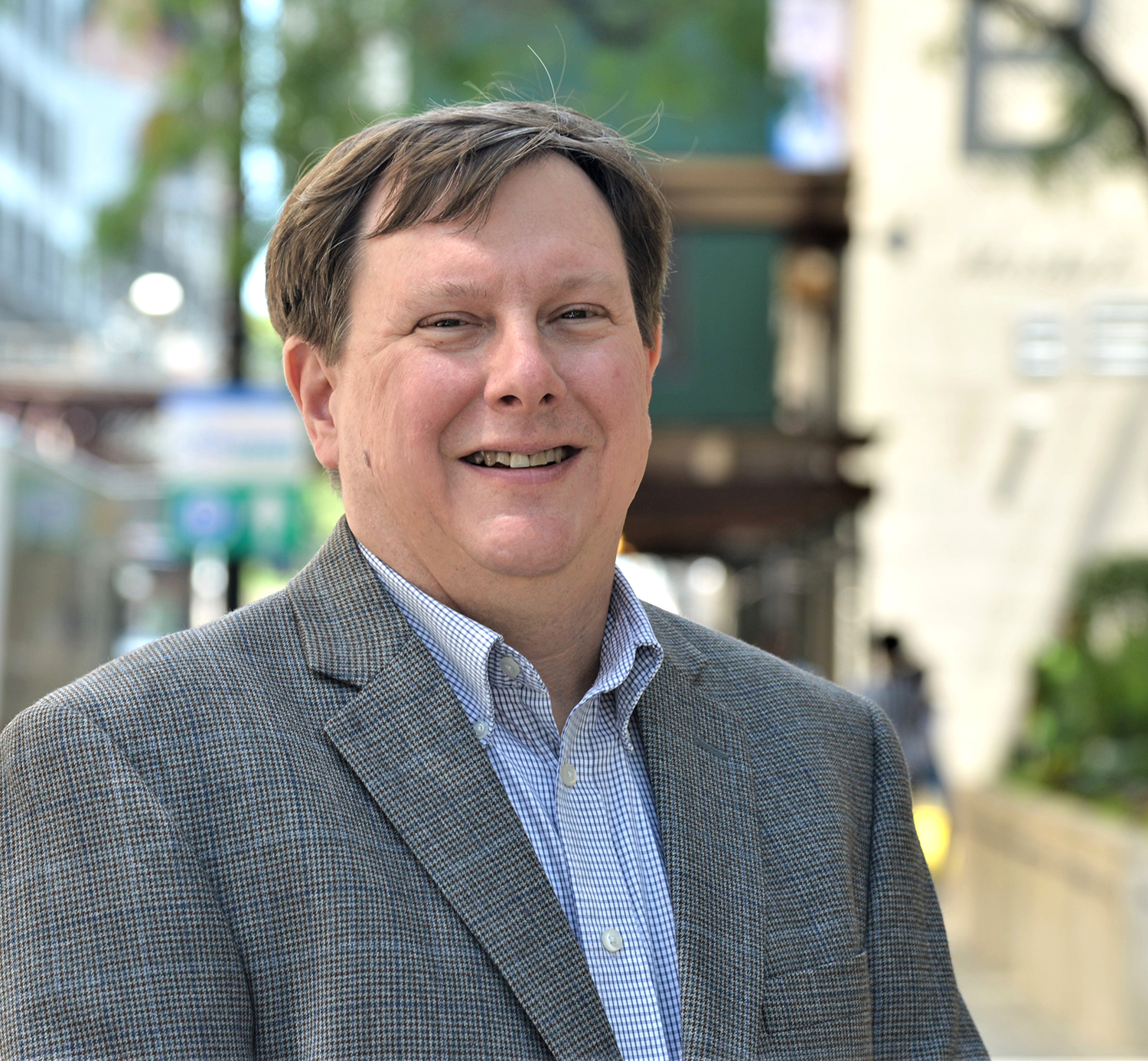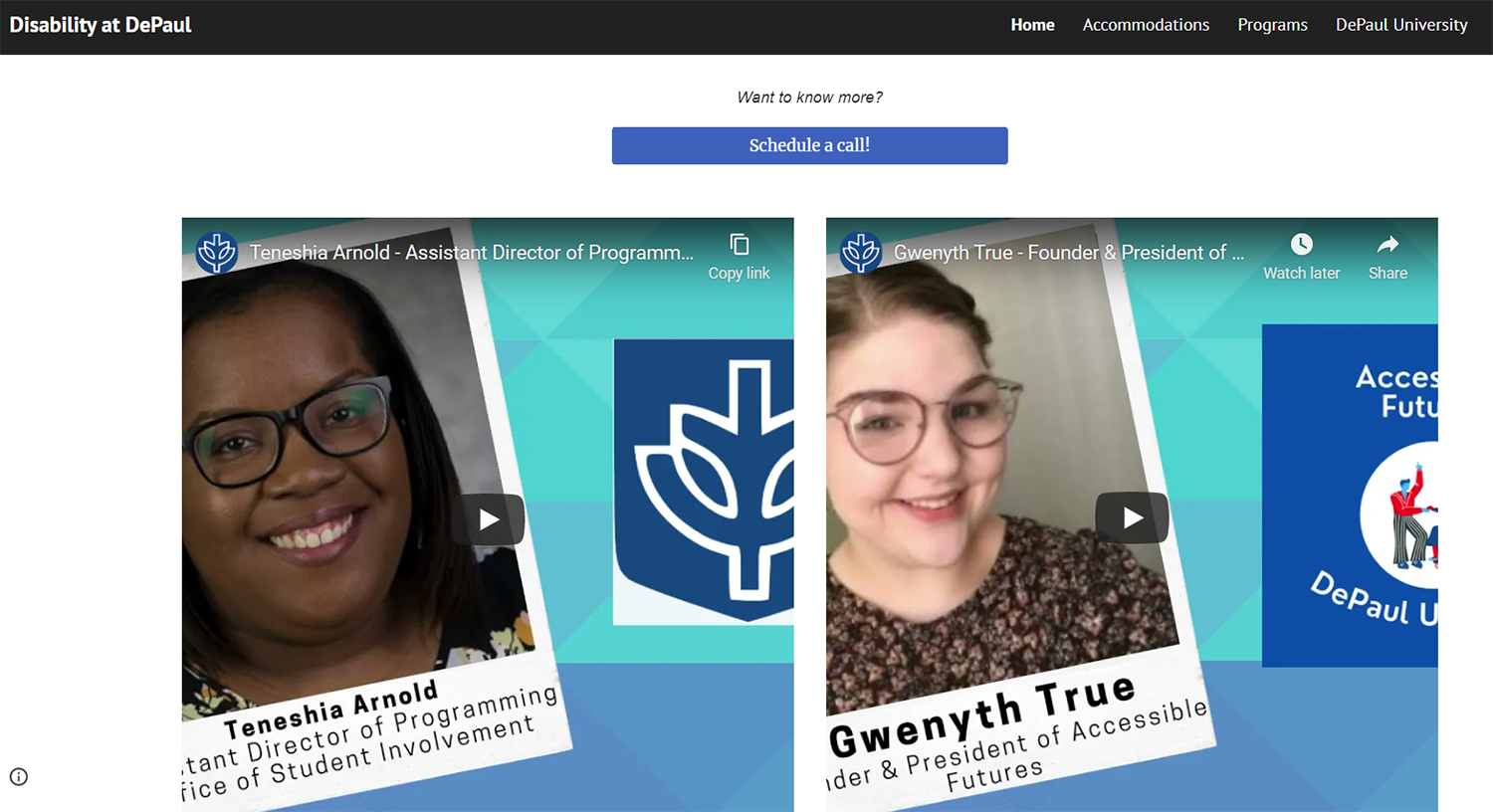 Several members of the Driehaus College of Business community are at the forefront of a campaign to expand and promote DePaul resources for Disabled students.
Several members of the Driehaus College of Business community are at the forefront of a campaign to expand and promote DePaul resources for Disabled students.
“I want every Disabled student to feel seen and heard in the community on campus,” says Gwenyth True, founder and president of
Accessible Futures, a new organization for Disabled students at DePaul University. To support this goal, the accounting honors student advocates that the “D” in Disabled be capitalized “to convey the cultural group identity that Disabled people share.”
“We seek to serve Disabled students by creating a community that prioritizes the lived experience of Disabled students and by advocating for widespread accessibility and social change,” True says. “We believe this will make a difference by allowing all students the space to discuss disability justice issues and by affirming the importance of Disabled students’ presence on campus.”
Accessible Futures held its first meet and greet in October – which is National Disability Awareness Month – to gauge what students want to see from the organization. “We are planning guest-speaker events, collaborations with other student organizations and academic departments, and more,” True shares.
True is among several members of the Driehaus College of Business community who are at the forefront of a campaign to expand DePaul resources for Disabled students and ensure that Disabled people have a say in how these resources are designed.
 DePaul alumnus and Senior Instructor Kent Klaus is spearheading efforts to make DePaul more accessible for students. | Photo by Kathy Hillegonds
DePaul alumnus and Senior Instructor Kent Klaus is spearheading efforts to make DePaul more accessible for students. | Photo by Kathy Hillegonds
DePaul alumnus
Kent Klaus, senior instructor in the School of Accountancy & MIS, is one of the faculty champions of this effort. He wants prospective and current students to know that “if you come to DePaul with a disability, we are going to listen to what you need to be successful and then create an environment that is uniquely supportive of what you want to achieve,” he explains. “We will enlist DePaul’s
Center for Students with Disabilities and other resources to do that.”
Klaus and Public Policies Studies Professor Kelly Tzoumis secured a two-year grant from
DePaul’s Academic Growth and Innovation Fund (AGIF) to embark on a multi-pronged campaign to expand and promote DePaul’s resources for Disabled students. A new
Disability at DePaul website, brochure and social media campaign, #Disability@DePaul, have been created to raise awareness among prospective and current students about DePaul resources for Disabled people.
Klaus and Tsoumis are also working with CSD, DePaul’s Office of Diversity and Inclusion and other units to better coordinate services and support for Disabled people on campus, guided by input from the university’s Disabled community and its allies. These initiatives coincided with the formation of two campus organizations—Accessible Futures for students and
Ability Alliance for Advocates and Allies (A4) for employees.
Student researchers hired through the AGIF grant, including Ebitari Kemefa, now a DePaul MBA graduate, contributed to the campaign’s strategies by surveying best practices at other higher education institutions, including how to attract and retain Disabled students. “This initiative is important and needed because disability inclusion in higher education matters,” she says. “Every student, disabled or not, should be able to participate in higher education learning without barriers.”
 The new Disability at DePaul website raises awareness among prospective and current students about DePaul resources for Disabled people.
The new Disability at DePaul website raises awareness among prospective and current students about DePaul resources for Disabled people.
About 1,200 DePaul students have identified themselves as Disabled people, according to the CSD, and more exist who have not stepped forward publicly, Klaus says. As part of the next phase of the AGIF-funded campaign, Klaus wants to lend his expertise to expanding career opportunities for DePaul’s Disabled students and promote this as another advantage to coming to DePaul.
Klaus recently retired as a partner at Deloitte in Chicago, where he led the professional service firm’s Disabled employee resource group and worked closely with Disability:IN and Disability Lead, organizations that seek to empower Disabled people in the workforce. He currently serves on the board of the
Chicago Chapter of Disability:IN, which works with employers interested in hiring people with Disabilities. Using his experience and connections, Klaus is collaborating with DePaul’s career advisors and internship managers to strengthen the career pipeline for Disabled DePaul students.
“I know there are several companies that are anxious to hire Disabled students,” he says “DePaul could be part of that supply chain of talent.”
The ultimate goal of the campaign, Klaus says, is to raise awareness among Disabled students about “what it means to come to DePaul—from having that great experience of being part of a community that supports them, to launching a career after they finish here.”